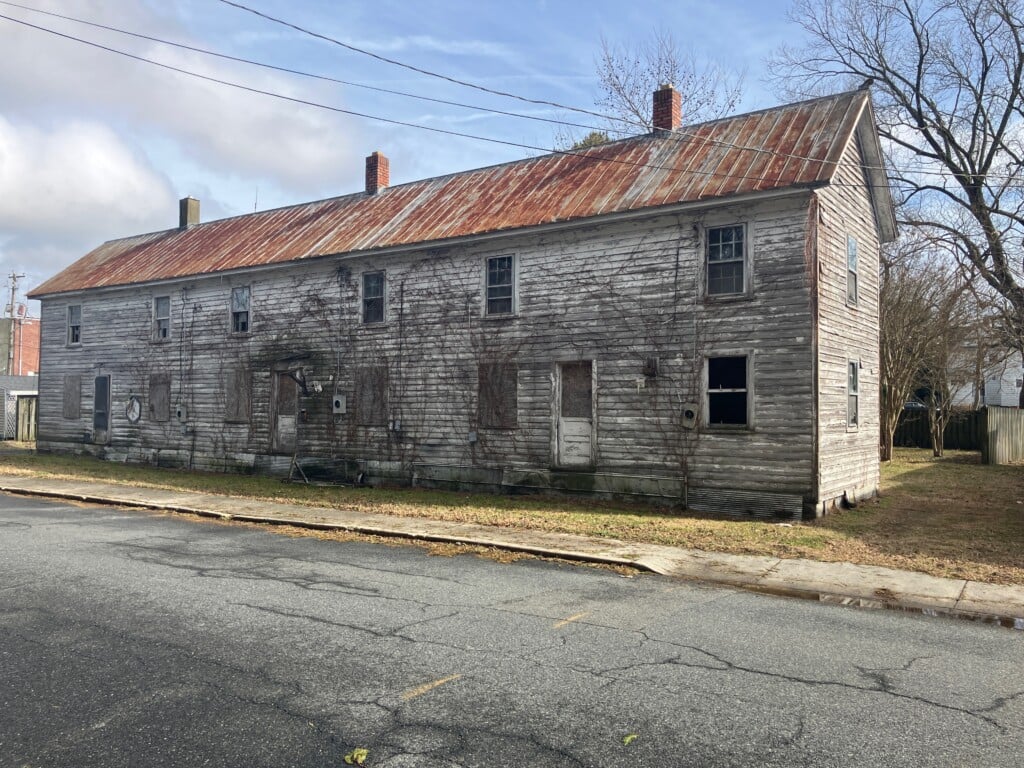Black History Month: “Stories of Our Elders”
DELMARVA – Over the past few weeks, we’ve shared stories of triumphs and tribulations in the Black community and the contributions to the Eastern Shore.
“The Stories of our Elders”
However, today, we’re recognizing the struggles of our elders. You’ve heard from anchors, reporters, even producers about the vast accomplishments of African Americans on Delmarva, and now you’ll hear from our greater WMDT family in our final Black History Month special.
Unconscious Bias
Segregation was enshrined in American law throughout the 19th and 20th centuries. Studio Tech Sammi Maleson share’s her mother’s story, Sandra Lajoie- Maleson. “In 2016, my mother was denied service in Frederick, Md, who was only serving white customers. She forced him to treat her equally, she is only 56 years old.”
Racist Residents
‘Black Codes’ were laws passed throughout the South in 1865, dictating most aspects of Black people’s lives, leading to “red-lining” – in which people are denied mortgages and loans, based on their race and ethnicity.
That discriminatory practice didn’t end until the 1970s, and studio tech Esquire Conway share’s what his elder, Tyrone Conway had to endure. “While growing up in the 1960s, my grandfather was forbidden from going into certain neighborhoods. Today he is 74 years old, retired and a homeowner.”
Integration vs Segregation
In the 1954 Supreme Court decision on Brown v Board of Education, segregation in schools was declared unconstitutional. However, depending on where you lived – many Black children had to make do before and after this decision. News Hour producer Shaniyah Houston’s grandmother Dorothy Horsey shared her story.
“In the early 1950s my grandmother and her classmates in Laurel, Delaware were always a year behind in school because they had to use hand-me-down books and wait until the white schools were finished with them. Today, she is currently 81 years old.”
Morning producer Areyhon Collick shares her grandfather, Gary Collick’s story. “Up until 1970, my grandfather attended a segregated school in Worcester County and rode segregated buses before they were ordered to integrate. Today, He is only 70 years old.”
Sit- In’s
In 1960- four young Black men staged the first sit-in in North Carolina, A form of protest where Black and White people would refuse to leave establishments after being denied service. Even if one worked there, it didn’t mean they could dine there. Multi-media journalist Tierra Williams share’s what her grandmother’s first employment experience.
“In the mid-1960s, in Anderson, Indiana, my nana worked as a dish collector in a restaurant that would not allow the black workers to eat upstairs with the staff on break. Instead, they were forced to eat in the basement a meat-cutting block. Today, she is 79 years old.”
Love is Love
The 1967 Supreme Court case Loving v Virginia placed interracial marriage under the protections of the 14th amendment. However, not every state complied. Good Morning Delmarva Anchor Jordie Clarck shares how this case, touched her family personally.
“In the 1970s , my black grandfather and white grandmother crossed state lines to marry in Maryland, because interracial marriage was illegal in Delaware.
Today they are in their 80s celebrating over 50 years of marriage, four sons, 12 grandchildren, and three great-grandchildren.”
Police Brutality
Another Supreme Court decision that would negatively impact African Americans for decades, the 1968 ruling that upheld stop and frisk. Civil rights leaders argued would target and harass “law-abiding” members of the black community.
“In 1998 while searching for a parking spot in Minnesota, my father was racially profiled and pulled over after being told he “looked like” a robbery suspect. He was innocent. Today He is 46. years old.”
Living the Legacies
All of these stories are not only personal, but powerful. And because our elders took the brunt of the bigotry, we can stand here today and continue to uplift their legacy.
None of these instances happened more than 60 years ago, and none of the Elders mentioned are over 85, this shows how close we are to Jim Crow, the journey we’ve taken along the way, and the lessons our elders and ancestors have left for us to use.


